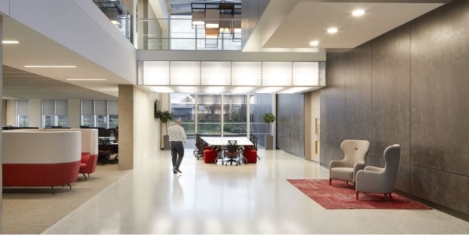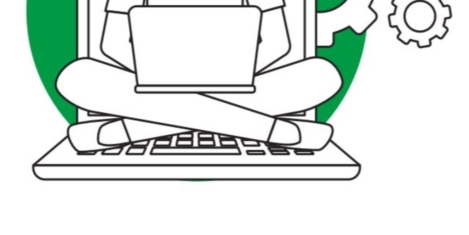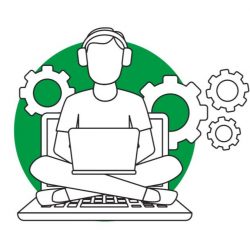To provide the best experiences, we use technologies like cookies to store and/or access device information. Consenting to these technologies will allow us to process data such as browsing behaviour or unique IDs on this site. Not consenting or withdrawing consent, may adversely affect certain features and functions.
The technical storage or access is strictly necessary for the legitimate purpose of enabling the use of a specific service explicitly requested by the subscriber or user, or for the sole purpose of carrying out the transmission of a communication over an electronic communications network.
The technical storage or access is necessary for the legitimate purpose of storing preferences that are not requested by the subscriber or user.
The technical storage or access that is used exclusively for statistical purposes.
The technical storage or access that is used exclusively for anonymous statistical purposes. Without a subpoena, voluntary compliance on the part of your Internet Service Provider, or additional records from a third party, information stored or retrieved for this purpose alone cannot usually be used to identify you.
The technical storage or access is required to create user profiles to send advertising, or to track the user on a website or across several websites for similar marketing purposes.
 Although London still ranks as the most attractive city in the world for people working in the global tech industry, three out of four UK tech workers (75 percent) are willing to leave for the UK for better opportunities elsewhere. Digital experts are among the most in-demand workers but due to their talent and transferable nature of tech skills, they are also among those most prepared to relocate, compared to only 61 percent of non-tech workers who would be willing to make the move overseas. (more…)
Although London still ranks as the most attractive city in the world for people working in the global tech industry, three out of four UK tech workers (75 percent) are willing to leave for the UK for better opportunities elsewhere. Digital experts are among the most in-demand workers but due to their talent and transferable nature of tech skills, they are also among those most prepared to relocate, compared to only 61 percent of non-tech workers who would be willing to make the move overseas. (more…)















 Employers need to better understand the needs of younger candidates, particularly that of flexible working, says Gartner, after its latest Global Labor Market Survey claims that a rise in Gen Z candidate’s regrets is leading to high turnover, low engagement and low productivity. According to the survey, 40 percent of Gen Z respondents reported that they would not repeat their decision to accept the job offer they had accepted and only 51 percent said they could see themselves having a long career at their organisation. More than one-third of candidates who regret their decision intend to leave their position within 12 months.
Employers need to better understand the needs of younger candidates, particularly that of flexible working, says Gartner, after its latest Global Labor Market Survey claims that a rise in Gen Z candidate’s regrets is leading to high turnover, low engagement and low productivity. According to the survey, 40 percent of Gen Z respondents reported that they would not repeat their decision to accept the job offer they had accepted and only 51 percent said they could see themselves having a long career at their organisation. More than one-third of candidates who regret their decision intend to leave their position within 12 months.
 Digital disruption has led to a rise in the number of FTSE 100 CEOs with a background in technology, but age, education and gender diversity remain stagnant, claim the results of the annual
Digital disruption has led to a rise in the number of FTSE 100 CEOs with a background in technology, but age, education and gender diversity remain stagnant, claim the results of the annual 


 Sage has released its annual
Sage has released its annual 









May 23, 2019
From storage to stowage: what neuroscience teaches us about work
by Helen Owen • Comment, Workplace design